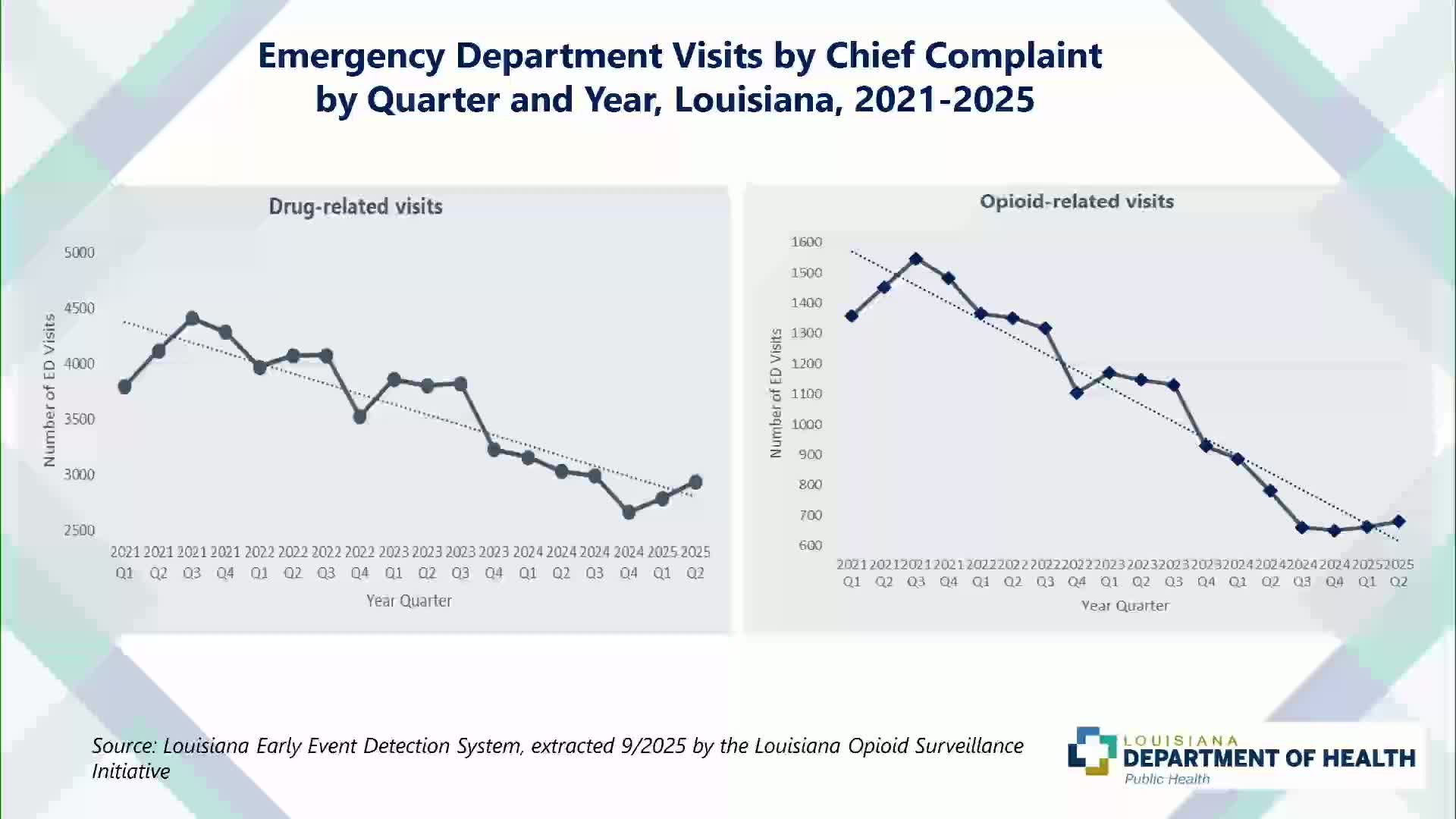HOPE Council hears literature update on alcohol‑use medications, opioid treatment and emerging GLP‑1 research
Get AI-powered insights, summaries, and transcripts
Subscribe
Summary
Dr. Calderon, the HOPE Council’s health impact lead, summarized 2024–25 addiction literature and early research linking GLP‑1 drugs to reduced alcohol and substance use.
Dr. Calderon, the HOPE Council’s health impact lead and former behavioral health medical director for Optum, presented a literature review drawn from the American Society of Addiction Medicine’s 2024–25 curation, summarizing recent findings on alcohol use disorder medications, opioid‑use disorder treatment and emerging evidence about GLP‑1 receptor agonists.
Dr. Calderon said hospitalization for a medical problem that coincides with alcohol use disorder is “a great opportunity to engage with people and begin treatment,” and that despite FDA‑approved options — naltrexone, acamprosate and disulfiram — “less than 2 percent of patients are initiated medications for alcohol use disorder.” He cited studies showing that patients who start such medications after discharge have lower 30‑day readmission rates, lower 1‑year mortality and higher likelihood of attending follow‑up primary care.
The presentation also described growing observational and early experimental work linking GLP‑1 receptor agonists (a class of drugs used for type 2 diabetes and obesity such as semaglutide and liraglutide) to reduced alcohol‑related hospitalizations or reduced drinking in trial settings. Dr. Calderon noted population studies from Sweden and United States claims‑based analyses that found lower alcohol‑related hospitalization rates among people prescribed GLP‑1 drugs, and he described a small randomized, laboratory‑based trial at the University of North Carolina in which semaglutide reduced the number of drinks and alcohol intake during a controlled laboratory session.
He cautioned that the epidemiologic work demonstrates association rather than causation, and that randomized controlled trials are ongoing (including trials recruiting for opioid‑use disorder). He emphasized safety and equity gaps in current medication use: national data show underuse of opioid‑use‑disorder medications (about one in four adults who need them receive them) and unequal access by race and age.
Dr. Calderon summarized practical implications for the council: hospitals are underusing established, life‑saving medications for both alcohol and opioid disorders; new therapies (GLP‑1s) are promising but preliminary; and equity and implementation strategies remain critical to expanding access.
Ending: Dr. Calderon asked the council to treat the review as informational and said he will share the materials with the HOPE Health Advisory group and report back with any committee recommendations.
